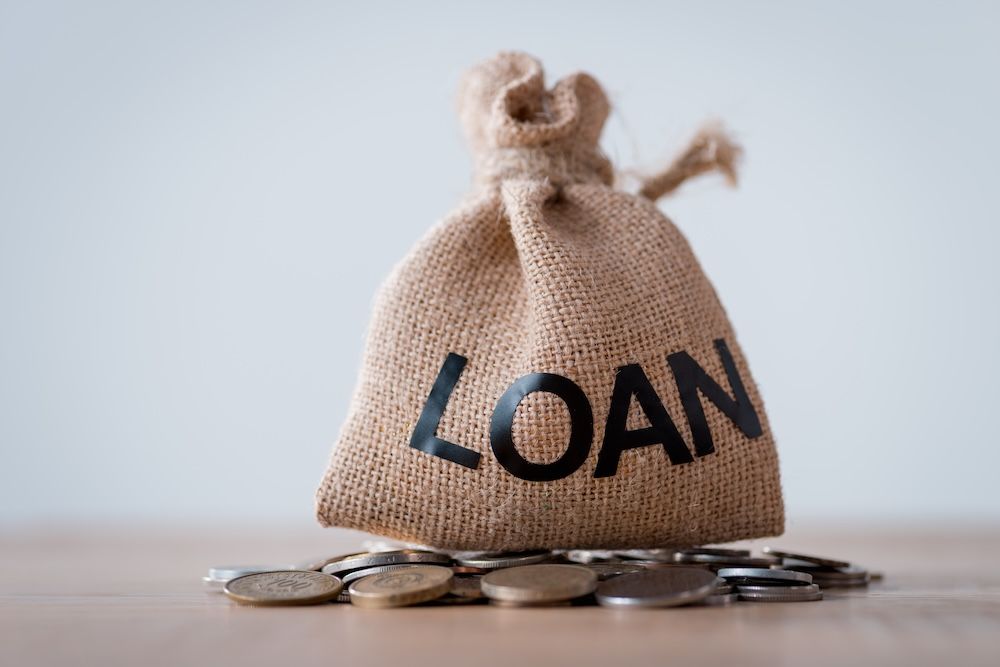A Comprehensive Guide to Home Loans: Solutions and Options Explained
Charting the world of mortgage can be complicated. Different choices exist, each with one-of-a-kind features and ramifications for potential home owners. Comprehending the differences between traditional and government-backed financings is important. The application procedure entails meticulous documents and pre-approval steps that lots of neglect. As borrowers commence on their home-buying journey, knowing exactly how to take care of these obligations effectively could imply the difference between monetary stability and challenge. What strategies can encourage them on this path?
Recognizing Home Loans: Types and Terms
Understanding the different kinds of home mortgage and their connected terminology is vital for possible house owners, as it equips them with the expertise needed to make educated monetary decisions. Mortgage can be extensively classified into adjustable-rate and fixed-rate home loans. Fixed-rate home loans preserve a consistent rate of interest over the life of the loan, offering stability in month-to-month repayments. Installment Loans. On the other hand, variable-rate mortgages include rate of interest rates that may vary after an initial set duration, potentially resulting in lower first repayments however raised future expenses
Additional terminology is necessary for clearness. Principal refers to the finance amount borrowed, while rate of interest is the cost of borrowing that quantity. The regard to the finance indicates its period, usually ranging from 15 to 30 years. Recognizing these basic principles allows potential customers to navigate the complicated landscape of home financing, guaranteeing they select the right financing option that aligns with their financial circumstance and long-lasting objectives.
Traditional Financings vs. Government-Backed Loans
A significant difference in home financing exists in between conventional finances and government-backed fundings, each satisfying different borrower demands and situations. Standard lendings are not insured or assured by the federal government and typically require greater credit report and deposits. They are typically interesting borrowers with stable financial backgrounds, as they may offer competitive rate of interest prices and terms.
In contrast, government-backed lendings, such as FHA, VA, and USDA finances, are made to aid details groups of consumers, including novice buyers and veterans. Cash Advance. These fundings normally include lower deposit needs and more adaptable credit history requirements, making them available to a wider variety of individuals
Inevitably, the choice between conventional and government-backed finances rests on the borrower's monetary scenario, lasting objectives, and qualification, making it necessary to thoroughly evaluate both alternatives prior to deciding.

The Function of Rate Of Interest in Home Funding
Rate of interest rates play an important duty in home funding, affecting borrowers' choices in between set and variable rate financings. The choice between these alternatives can considerably influence month-to-month payments, influencing total price. Understanding how rate of interest rates operate is crucial for any person maneuvering via the home lending process.
Dealt With vs. Variable Prices
Homebuyers encounter an essential choice when picking between fixed and variable rates, as this choice greatly influences the expense of funding in time. Fixed-rate home loans provide security, securing a rate of interest rate for the life of the loan, which can be helpful in an increasing passion rate setting. This predictability allows home owners to budget plan much more effectively. Conversely, variable-rate home mortgages, or variable-rate mortgages (ARMs), generally begin with lower first rates that can vary based on market problems. While this may cause reduced initial repayments, customers face the threat of enhanced rates in the future. Inevitably, the option in between variable and set rates relies on private economic circumstances, risk resistance, and assumptions concerning future rates of interest fads.
Influence on Regular Monthly Payments
When reviewing home financing options, the effect of passion prices on regular monthly settlements is a key aspect to ponder. Rates of interest straight affect the total price of borrowing, influencing just how much a debtor will certainly pay every month. A reduced rate of interest rate outcomes in smaller month-to-month settlements, making homeownership more budget friendly. On the other hand, higher prices can greatly increase regular monthly commitments, potentially straining a house owner's budget plan. In addition, the car loan term plays an essential function; longer terms might spread out settlements out yet can cause paying more passion over time. Understanding just how rate of interest connect with funding quantities and terms is vital for debtors to make educated financial choices and select a home loan that aligns with their lasting monetary goals.
Mortgage Brokers vs. Straight Lenders: Which Is Right for You?
When taking into consideration a home loan, potential borrowers must recognize the unique functions and obligations of home loan brokers and direct lending institutions. Each alternative presents its own benefits and drawbacks, which can considerably affect the total expense of financing. An enlightened selection calls for mindful analysis of these factors to figure out the ideal fit for specific requirements.
Functions and Duties Specified
Steering the complexities of home funding needs a clear understanding of the duties and duties of mortgage brokers and straight lenders. Home loan brokers act as middlemans, connecting debtors with lenders. They evaluate a customer's economic circumstance, curate financing options, and guide clients with the application process, usually leveraging numerous lender relationships to protect positive terms. Conversely, direct lending institutions, such as banks and cooperative credit union, offer loans directly to consumers. They handle the entire loan process, from application to financing, with an emphasis on their very own items. Each alternative offers distinct avenues for obtaining financing, making it crucial for debtors to assess their requirements and preferences when choosing in between involving a mortgage broker or working with a direct loan provider.
Advantages and disadvantages Comparison
Selecting between a home loan broker and a straight lending institution can considerably influence the home funding experience, as each alternative uses one-of-a-kind benefits and disadvantages. Home mortgage brokers function as intermediaries, offering access to multiple lending institutions and possibly far better rates, while simplifying the car loan procedure. However, they might charge fees and This Site depend on commission frameworks that can influence their recommendations. On the other hand, straight lending institutions improve the procedure by offering internal lendings, which can bring about much faster approvals and less problems. Conversely, they might have a minimal selection of products and much less flexibility relating to pricing. Inevitably, the decision depends upon private preferences, monetary circumstances, and the wanted level of assistance throughout the home mortgage trip.
Cost Effects Evaluated
While look what i found reviewing the expense implications of home loan brokers versus direct lending institutions, prospective house owners need to consider various aspects that can considerably influence their overall expenditures. Home mortgage brokers normally charge costs for their services, which can differ considerably, influencing the total lending price. They commonly have accessibility to a broader variety of car loan items and competitive prices, potentially saving debtors cash in the long run. Conversely, straight loan providers might offer a more simple procedure with perhaps lower upfront expenses, but their lending options may be restricted. It is essential for property owners to compare rates of interest, charges, and terms from both lending institutions and brokers, guaranteeing they make an informed choice that aligns with their financial objectives and demands.
The Home Mortgage Application Process: What to Expect

The home funding application procedure can often feel frightening for several applicants. It commonly begins with gathering required paperwork, consisting of evidence of income, credit rating background, and personal identification. Lenders use this info to analyze the candidate's monetary stability and establish car loan eligibility.
Next, applicants send an official application, which might include completing on the internet kinds or giving information personally. During this phase, lending institutions review various factors, such as debt-to-income ratio and credit history, to pick finance terms.
When pre-approved, the lender will perform a complete assessment of the residential or commercial property to determine its value aligns with the car loan quantity. This stage may also consist of added history checks.

After last authorizations and problems are fulfilled, the funding is processed, resulting in the closing stage. Recognizing each step encourages applicants, making the journey smoother and a lot more workable as they move towards homeownership.
Tips for Managing Your Home Financing Responsibly
Successfully steering the mortgage application procedure is simply the start of a liable economic trip. Taking care of a home lending calls for attention to numerous vital techniques. Consumers ought to develop a clear budget that accommodates month-to-month home loan settlements, property tax obligations, and insurance coverage. Routinely assessing this budget helps stop overspending and guarantees prompt repayments.
Additionally, making extra payments when feasible can significantly minimize the finance principal and overall rate of interest paid over time. Debtors should also preserve open lines of interaction with their loan provider, specifically in times of economic problem. This can bring about possible solutions such as finance modifications or refinancing choices.
It is recommended to keep track of debt scores consistently. A good credit history can give opportunities for better lending terms in the future. Cash Loans. By complying with these pointers, homeowners can navigate their car loan responsibilities efficiently, assuring lasting try here economic wellness and security
Often Asked Questions
What Are Closing Prices and How Are They Computed?
Closing expenses include charges connected with wrapping up a mortgage, consisting of assessment, title insurance, and lending origination fees. These prices usually range from 2% to 5% of the car loan amount, differing based on area and lending institution.
Can I Get Approved For a Home Mortgage With Bad Credit Score?
Yes, people with poor credit history can get a home lending, though alternatives might be limited. Lenders frequently call for greater down payments or rates of interest, and exploring government-backed financings may improve opportunities of approval.
What Is Home mortgage Insurance policy and When Is It Required?
When a consumer makes a down payment of much less than 20%, mortgage insurance policy safeguards lenders versus default and is usually called for. It guarantees that lending institutions recoup losses if the debtor stops working to pay back the funding.
Just How Does Refinancing Work and When Should I Consider It?
Refinancing involves replacing a present home mortgage with a brand-new one, normally to safeguard a lower rate of interest price or modification financing terms. House owners ought to consider re-financing when rate of interest go down significantly or their economic circumstance improves.
What Occurs if I Miss a Home Mortgage Settlement?
If a mortgage payment is missed out on, the loan provider generally analyzes late costs, reports the misbehavior to credit history bureaus, and might initiate foreclosure procedures if settlements remain to be disregarded, eventually endangering the home owner's building.
Fixed-rate mortgages maintain a consistent passion price over the life of the loan, supplying security in month-to-month settlements. A significant distinction in home funding exists between conventional loans and government-backed car loans, each catering to different consumer requirements and conditions. In comparison, government-backed car loans, such as FHA, VA, and USDA fundings, are designed to help certain groups of borrowers, consisting of new buyers and veterans. Interest rates play a crucial duty in home funding, affecting borrowers' choices in between fixed and variable price car loans. Fixed-rate home loans provide stability, securing in a rate of interest price for the life of the financing, which can be helpful in a rising passion rate setting.